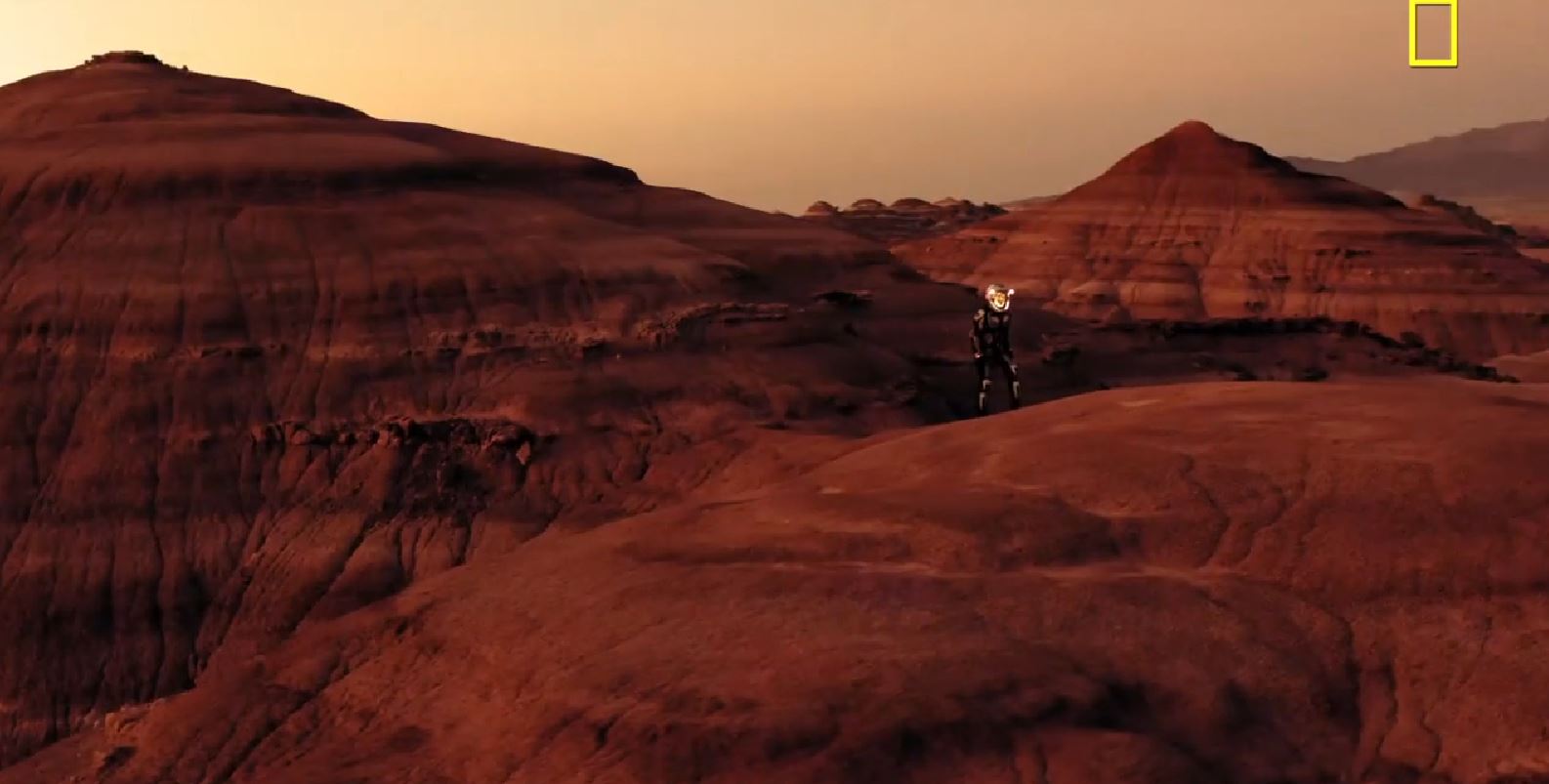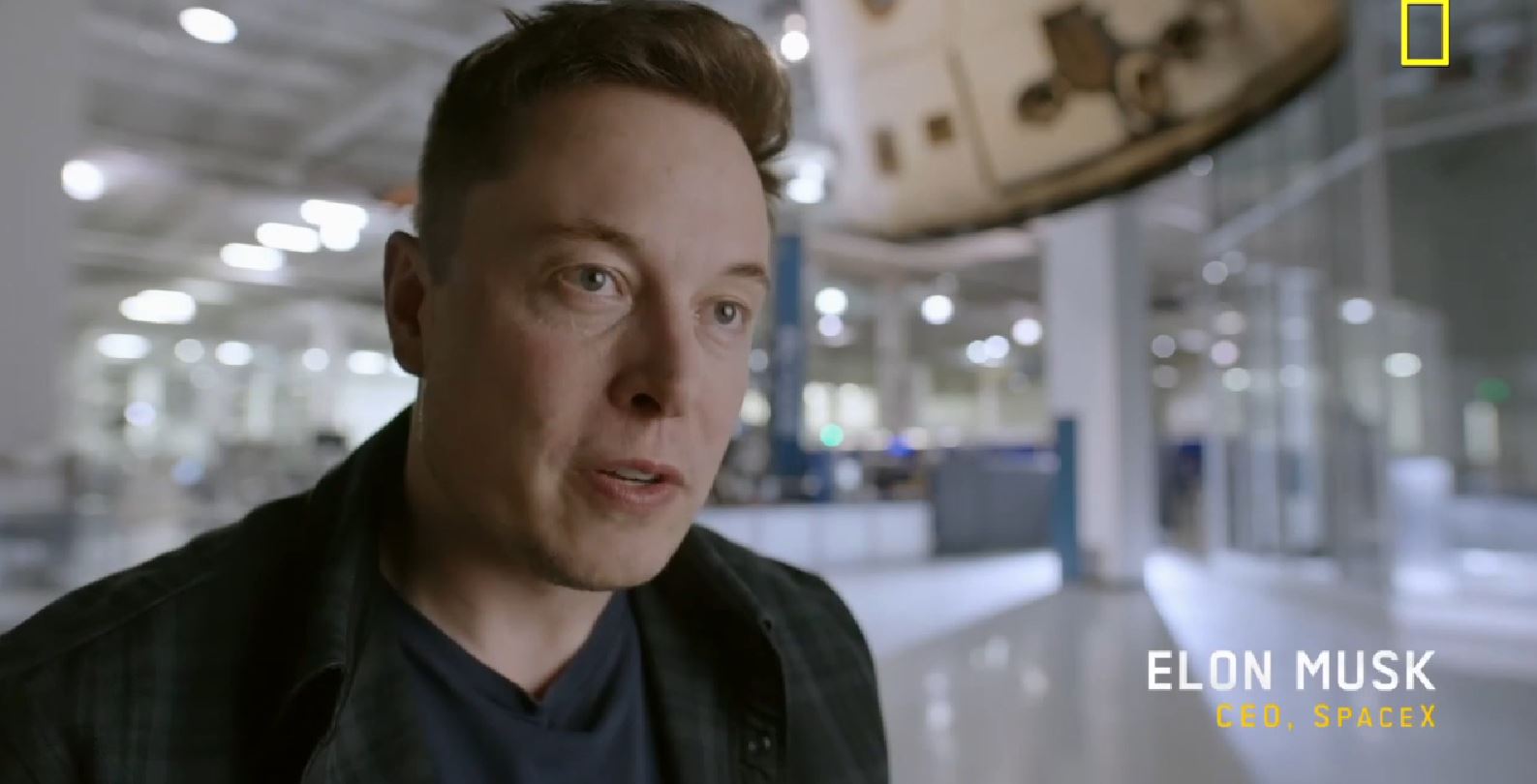Nat Geo's 'Mars' Series Takes Viewers on Journey to Red Planet

Humans have long been fascinated with Mars, and a new TV special on the National Geographic Channel will combine real-world stories with a scripted narrative to take viewers on a journey to the Red Planet.
Called "Mars," the six-part series will tell the story of a fictional astronaut crew on the very first human Mars mission in 2033. In the TV special, the crew of the Daedalus, led by American Mission Commander Ben Sawyer (played by Ben Cotton) lands on Mars and sets up a preliminary base.
In addition to this fictional story, the series weaves in interviews with a number of real-world space experts. (The full list is at the bottom of this story.) [Manned Mars Mission: How NASA Could Do It]
"Mars," which will debut in November 2016 (a specific date has not been set), is backed by some serious Hollywood cred as well — Academy Award-winning filmmakers Ron Howard and Brian Grazer were producers on the new series.
"The offer to the audience will be information meets vivid and experiential filmmaking," Howard continued. "Nat Geo's ambition was high, and we are really honored and thrilled to try and meet that challenge."
To make the production as realistic as possible, the team consulted a number of space experts, including Robert Braun (an aerospace engineer at the Georgia Institute of Technology) and Mae Jemison (a former NASA astronaut who was the first black woman in space. Jemison "acted as a space adviser on the series, working closely with the cast to help them hone their portrayals," according to the statement.
National Geographic said it "received exclusive access" to billionaire entrepreneur Elon Musk, founder and CEO of the spaceflight company SpaceX, when the company made its first-ever landing of a Falcon 9 reusable rocket on a drone ship last April. Musk is well known for harboring ambitions to send humans to Mars one day.
Breaking space news, the latest updates on rocket launches, skywatching events and more!
"The future of humanity is fundamentally going to bifurcate along one of two directions: Either we're going to become a multiplanet species and a spacefaring civilization, or we're going to be stuck on one planet until some eventual extinction event," Musk said in the series, according to the statement. "In order for me to be excited and inspired about the future, it's got to be the first option."
To complement the series, National Geographic's November issue will have a cover story on Mars. Additionally, the company will produce a book for adults called "Mars: Our Future on the Red Planet," on sale beginning Oct. 25. (Disclosure: The book was written by Space.com contributor Leonard David.) National Geographic will also release a second book for children called "Mars: The Red Planet" (on sale beginning Sept. 27).
The series will air in 171 countries. It is produced by Imagine Entertainment and RadicalMedia for National Geographic Channel. Ongoing coverage of the series will be available at makemarshome.com and nationalgeographic.com.
Here is the full list of people who are interviewed in the series:
- Charles Bolden, NASA administrator; former NASA astronaut
- Peter Diamandis, founder and executive chairman of X Prize; co-founder and co-chairman, Planetary Resources
- Neil deGrasse Tyson, director of the Hayden Planetarium at The Rose Center for Earth and Space
- David Dinges, professor in the department of psychiatry atthe University of Pennsylvania
- Casey Dreier, director of space policy at The Planetary Society
- Ann Druyan, executive producer and writer, "Cosmos"
- Charles Elachi, retired director, NASA's Jet Propulsion Laborary (JPL); professor emeritus at Caltech
- Jim Green, NASA Planetary Science Division director
- John Grunsfeld, NASA associate administrator, Science Mission Directorate; former NASA astronaut
- Jennifer Heldmann, NASA planetary scientist
- Jedidah Isler, award-winning astrophysicist; emerging Explorer, National Geographic
- Thomas Kalil, deputy director of policy at the White House Office of Science and Technology Policy; senior adviser, science, technology and innovation, National Economic Council
- Roger Launius, associate director of collections and curatorial affairs at the Smithsonian Institution's National Air and Space Museum
- John Logsdon, professor emeritus, political science and international affairs, George Washington University
- James Lovell, former NASA astronaut; commander, Apollo 13 mission
- Elon Musk, CEO and chief technology officer of SpaceX; CEO of Tesla Motors; chairman of SolarCity
- Stephen Petranek, author of "How We’ll Live on Mars" (Simon & Schuster, 2015)
- Mary Roach, author of "Packing for Mars" (W. W. Norton & Co., 2010)
- Jennifer Trosper, Mars 2020 mission manager, JPL
- Andy Weir, author of "The Martian" (Crown, 2014)
- Robert Zubrin, president of The Mars Society; president of Pioneer Astronautics
Follow Elizabeth Howell @howellspace, or Space.com @Spacedotcom. We're also on Facebook and Google+. Original article on Space.com.

Elizabeth Howell (she/her), Ph.D., was a staff writer in the spaceflight channel between 2022 and 2024 specializing in Canadian space news. She was contributing writer for Space.com for 10 years from 2012 to 2024. Elizabeth's reporting includes multiple exclusives with the White House, leading world coverage about a lost-and-found space tomato on the International Space Station, witnessing five human spaceflight launches on two continents, flying parabolic, working inside a spacesuit, and participating in a simulated Mars mission. Her latest book, "Why Am I Taller?" (ECW Press, 2022) is co-written with astronaut Dave Williams.

